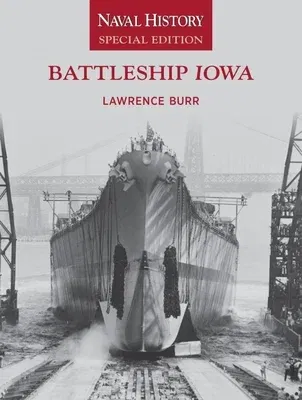USS Iowa BB-61, the first of four Iowa-class battleships built for
the U.S. Navy, was launched in 1942. Capable of thirty-three knots and
armed with nine new fifty-caliber sixteen-inch guns, she was the
pinnacle of battleship design for the U.S. Navy during World War II. The
Iowa class perfectly merged the heavy armor of battleships with the
speed of battlecruisers.
Iowa's speed and heavy armament positioned her to accompany and
protect U.S. Fast Carrier task forces through the Pacific War by
participating in multiple actions from Truck, the Philippine Sea, Leyte,
and ending in Tokyo Bay. Deactivated in 1948, the outbreak of the Korean
War saw Iowa recommissioned in 1951 for shore bombardment duty in
support of United Nation troops against the North Korean army invasion.
Iowa returned to the U.S. in 1952, and then participated in NATO
exercises until she was decommissioned in 1958.
Soviet expansion and rearmament programs in the 1970's saw Iowa
recommissioned in 1984 following a two-year modernization program. This
program saw the addition of nuclear capable Tomahawk and Harpoon
missiles and modern computer-based communication technology. Extensive
exercises with NATO forces and goodwill visits carried through until
April 1989, when tragedy struck the ship with an explosion in gun turret
two killing 47 crew members. The soundness of Iowa's design and her
armored strength prevented the explosion from reaching her magazines and
the potential loss of the ship.
Decommissioned in October 1990 and placed in reserve, she would
eventually be stricken from the Navy record in 2006. Transferred to the
Port of Los Angeles in 2012, Iowa now serves as the National Museum of
the Surface Navy located at San Pedro, California.

